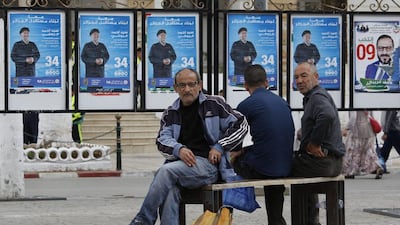Today, Algeria’s 23 million voters will head to polling stations to elect 462 new members of the People’s National Assembly. This is the first ballot since the constitutional amendments of 2016, but the fourth during the Algerian president Abdelaziz Bouteflika’s 18-year tenure.
Though Mr Bouteflika has set up an independent election monitoring body to counter claims of electoral fraud, Algerian opposition parties remain sceptical. Louisa Hanoune, leader of the Trotskyist Workers’ Party, says that “political decency and social integrity have deserted Algeria.”
Many observers still recall that the National Liberation Front party was at the centre of a huge scandal during the 2012 legislative elections. In November 2016, when Djamel Ould Abbes, the newly appointed FLN secretary general, took over from the controversial Ammar Saadani, he publicly denounced “those who used the chkara [the money bag] to gain access to the assembly,” and vowed to fight against corruption as a means of political representation. But to no avail.
Corruption together with generally difficult economic conditions have made the population wary of politicians. The authorities are, nevertheless, still trying to persuade voters to participate.
To increase female participation in politics, Algerian electoral law compels parties to include a minimum of 15 per cent of women on their lists. But five secularist and Islamist political parties when displayed faceless portraits of female candidates on their campaign posters, it sparked outrage.
A massive boycott is expected. Large segments of the population view these elections as a smokescreen to conceal the degeneracy of the political elite. They are also aware that parliament remains weak in terms of its legislative powers and it cannot guarantee jobs or decent housing to millions of young Algerians.
Despite government efforts to get people to the ballot box today, lots of Algerians are much more interested in the French presidential elections than what’s going on in Algeria. Is it a legacy of the colonial past? Is it about widespread public dissatisfaction with incumbent politicians and a sclerotic political system? Is it Marine Le Pen? Or Emmanuel Macron’s condemnation of France’s colonial past in Algeria?
During his visit to Algiers last February, Mr Macron did not use the clichéd jargon of some French politicians. Aware that France is now Algeria’s main trade partner, but also seeking to expunge a dark colonial legacy, he said France’s history in Algeria was a “crime against humanity”. Ms Le Pen retorted: “Is there anything worse when you want to become president than going abroad to accuse the country you want to lead of crimes against humanity?”
Algeria lived under French rule for 132 years until it won a bloody war of independence (1954-1962) in which more than a million Algerians died.
Mr Macron’s comments about France’s “barbaric” colonial past were met with applause in Algeria. And many cannot help but put the election campaigns in Algeria and in France side by side. They know that Ms Le Pen could surprise everyone even while the polls show that Mr Macron has a strong chance of winning the French presidency.
They also believe that Algerian MPs have already “bought” their seats in the National Assembly, and the public discontent regarding the dire socioeconomic situation is the least of their worries. Perhaps this is why they look across the water at the French elections. Is their own reality too hard to contemplate? The answer is plain to see.
Dr Abdelkader Cheref is a professor at the American University of Ras Al Khaimah

